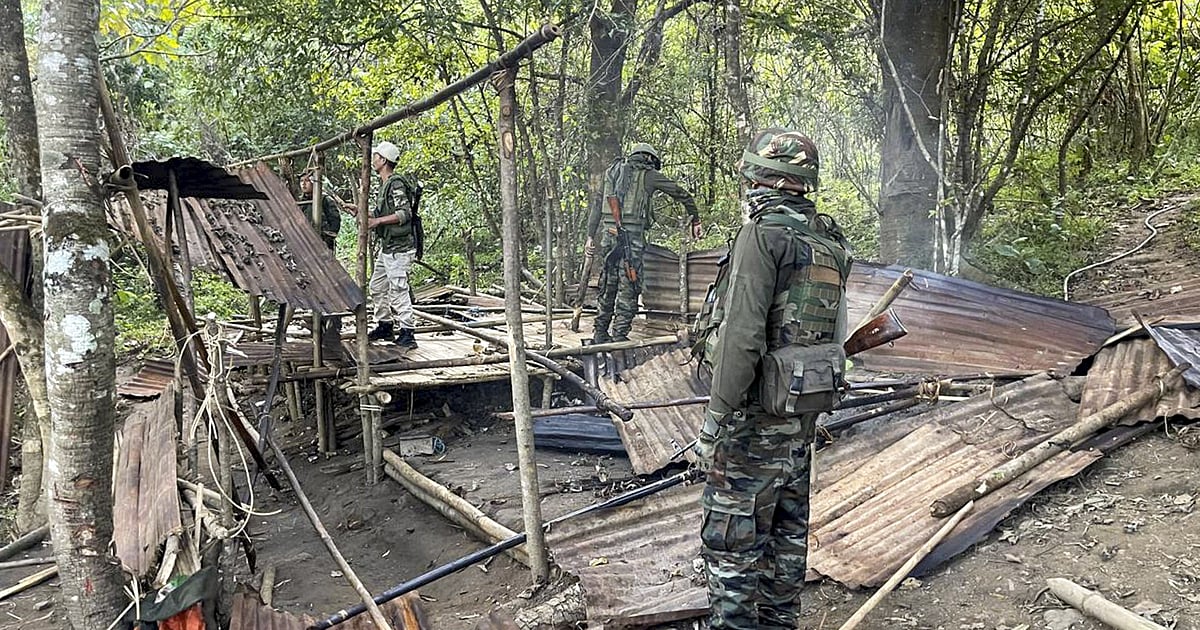 |
|
The recent violence in Manipur, a northeastern state in India, has escalated significantly, leading to a strong response from a section of the state's ruling National Democratic Alliance (NDA) MLAs. Following the brutal killing of six civilians in Jiribam, these MLAs convened a meeting and adopted an eight-point resolution demanding swift and decisive action against the perpetrators, primarily identified as Kuki militants. This resolution, echoing the sentiment of many in the state, highlights the growing urgency to address the escalating conflict and restore peace and stability to the region. The demand for 'mass operations' within a seven-day timeframe underscores the gravity of the situation and the MLAs' determination to see immediate results. This urgency reflects a deep-seated concern within the state regarding the ability of law enforcement agencies to effectively contain the violence and protect civilian lives.
A crucial element of the resolution involves declaring the responsible Kuki militant group as an 'unlawful organisation'. This move is aimed at strengthening the legal framework for prosecuting and suppressing the militants' activities. By legally designating them as an unlawful entity, the government intends to provide a clearer basis for targeted operations, asset seizures, and prosecutions of individuals involved in the group's actions. This decision signifies a heightened commitment from the state government towards tackling the root causes of the violence and preventing future incidents. The declaration also carries significant symbolic weight, signaling the government’s resolve to not tolerate such violent acts and its commitment to upholding the rule of law.
Beyond immediate action against the militants, the resolution also addresses broader concerns about the ongoing unrest. The MLAs have strongly condemned the arson attacks, vandalism, and looting of properties, primarily targeting ministers and MLAs themselves. This condemnation underscores the widening scope of the violence, impacting not only ordinary citizens but also government officials. The statement issued by the Chief Minister's Office (CMO) clearly indicates an intention to pursue legal action against those responsible for these actions, based on the findings of a High-Powered Committee. This approach suggests a move towards a more comprehensive investigation, aiming to identify and prosecute all those involved in the recent wave of violence and destruction. The establishment of this committee further demonstrates a concerted effort by the state government to address the systemic issues contributing to the instability.
The involvement of the central government is also prominently featured in the resolution. The MLAs have urged both the Central and State governments to take immediate steps to restore peace and normalcy in Manipur. This calls for collaborative action between the state and national governments, signifying the recognition that the scale and complexity of the conflict require a coordinated response. Furthermore, the MLAs' request for a review of the Armed Forces (Special Powers) Act (AFSPA) in six police station areas presents a complex issue with far-reaching implications. AFSPA, a controversial law granting special powers to the armed forces, is often criticized for its potential for human rights abuses. The request for review suggests a need to critically examine the law's efficacy in the context of the current crisis and its potential impact on the civilian population. The balance between maintaining security and safeguarding human rights will likely be a key consideration during the review process.
The political context surrounding this resolution is significant. The NDA's strength in the 60-member Manipur Assembly has decreased to 46 after the National People's Party (NPP) withdrew its support to the Biren Singh-led government. This shift in the political landscape could potentially influence the government's ability to implement the resolution's provisions. The attendance figures at the meeting – 27 out of 46 NDA MLAs – underscore the degree of internal unity and support for this strong response. The absences, however, also highlight potential divisions or concerns within the ruling coalition regarding the proposed course of action. The statement from the CMO suggests that some absences were due to health issues, however the fact that they were communicated suggests premeditation and a potential challenge to the proposed measures. The conditional statement indicating future action by the MLAs if the resolution's demands aren't met within the timeframe indicates a preparedness for more decisive political action if their calls for immediate action are ignored.
In conclusion, the situation in Manipur is critical, and the resolution adopted by the NDA MLAs represents a significant response to the escalating violence. The demands for decisive action against militants, legal action against perpetrators of other crimes, and a review of AFSPA highlight the multifaceted nature of the crisis. The urgency expressed in the resolution, coupled with the threat of further political action, underscores the pressure on both the state and central governments to effectively address the root causes of the conflict and restore peace and security to the region. The coming days and weeks will be crucial in determining whether these demands are met and whether the measures undertaken will be successful in bringing an end to the violence and restoring stability to Manipur.
Source: Manipur NDA MLAs call for 'mass operation' against militants behind civilian killings in Jiribam
